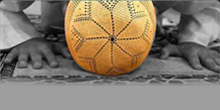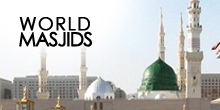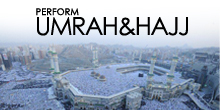Ramadan: A time for fasting, and feeding others By Sikander Hashmi
Posted in Uncategorized
 For many of Kingston’s Muslims, today’s lunch will be their last for the next 30 days.
For many of Kingston’s Muslims, today’s lunch will be their last for the next 30 days.
Ramadan, the Islamic month of fasting, begins tonight. For healthy Muslim adults, that means absolutely no food, drink or sex between dawn and sunset. The pre-dawn meal (called suhoor) will be taken before 4 a.m. and the fast-breaking meal (iftar) will be at sunset, just before 9 p.m. Since Ramadan is also the month of the Qur’an, special nightly prayers will be offered during which a portion of the Qur’an will be recited from memory. This way, recitation of the entire book will be completed by the end of the month.
With Ramadan occurring in the summer months nowadays, staying healthy and hydrated is a top concern for many Canadian Muslims. Those who are unable to fast – due to illness or infirmity, for example – are exempt and can make up fasts later when the days are shorter. If that’s not possible, they can feed the needy as expiation.
But even many Muslims who are able to fast are increasingly thinking about feeding others during the holy month. Ramadan is not just about fasting. It’s also the month of charity, patience and mercy.
Although helping the less fortunate has always been regarded as virtuous, many Muslim communities in Canada have been so far focused on building institutions such as mosques, centres and schools. But now, an increasing number of initiatives are being launched in cities across the country to feed the needy, especially in Ramadan.
There are little-known programs that have been running for years. Kingston’s Muslim community has been offering ongoing support to the Partners in Mission Food Bank for years with financial contributions. During the annual festival of sacrifice (known as Eid al-Adha), which coincides with the Hajj pilgrimage to Makkah, animals are sacrificed to commemorate the willingness of Prophet Abraham to sacrifice his son Ishmael at God’s command. The meat from these animals is often shared between family, friends and the needy. A portion from the latter is sent to the local food bank annually.
At the Islamic Foundation of Toronto, 700 hot meals are served to the needy every Saturday of the year. The majority of the clients are not Muslims. The Muslim Welfare Centre distributes 300 lunch bags every Saturday to the needy and homeless in downtown Toronto, while the Syeda Khadija Centre delivers 250 hot meals every Sunday to youth and women’s shelters west of Toronto. There are numerous other examples.
Over the past few years, there has been an increase in the number of Ramadan campaigns to feed the hungry. A large campaign in Montreal’s Muslim community, now in its third year, is bringing together mosques, student groups, businesses and individuals to help cook and serve 4,000 meals during Ramadan at the Old Brewery Mission.
In London, Ont., the “Fast a Day, Drive Hunger Away” campaign is in its second year. It encourages non-Muslim Canadians to join the Muslim community for one day of fasting. The money saved by not eating that day is donated to the London Food Bank.
Ziyaad Mia, a Toronto lawyer who is running his own Ramadan campaign against hunger for the second year in a row, says it’s a sense of responsibility that motivated him to start Give 30, which asks Muslims to donate $1 a day in Ramadan to the Daily Bread Food Bank in Toronto and the Calgary Inter-Faith Food Bank. Last year, the campaign raised $40,000.
“This project is important to me because we all have a responsibility, not only as citizens of Canada, but as human beings, to render service to others,” he said. “If we want to transform our neighbourhood, city, country and the world, we need to first transform ourselves, and this project has given me small chance to challenge myself to put my money where my mouth is – to stop complaining about ‘how the world is’ and work on ‘how the world ought to be.’”
As an imam, I often remind my fellow Muslims that one of the purposes of fasting is to become more patient and to exercise self-control, which are first tested at fast-breaking. After many hours of fasting, the desire to indulge can be difficult to resist, and it’s easy to become obsessed about food.
It is wonderful to see that many Muslims are busying themselves with feeding others instead of themselves. This, along with caring for our neighbours (regardless of their faith), is an important yet often overlooked part of Islamic teachings. Ramadan is an excellent and very appropriate time to revive these teachings.
Sikander Hashmi, a member of the Whig-Standard’s Community Editorial Board, is a freelance journalist originally from Montreal. He is currently serving as an imam at the Islamic Centre of Kingston. He can be reached through his website at www.sikander.ca or through Twitter @kingstonimam











